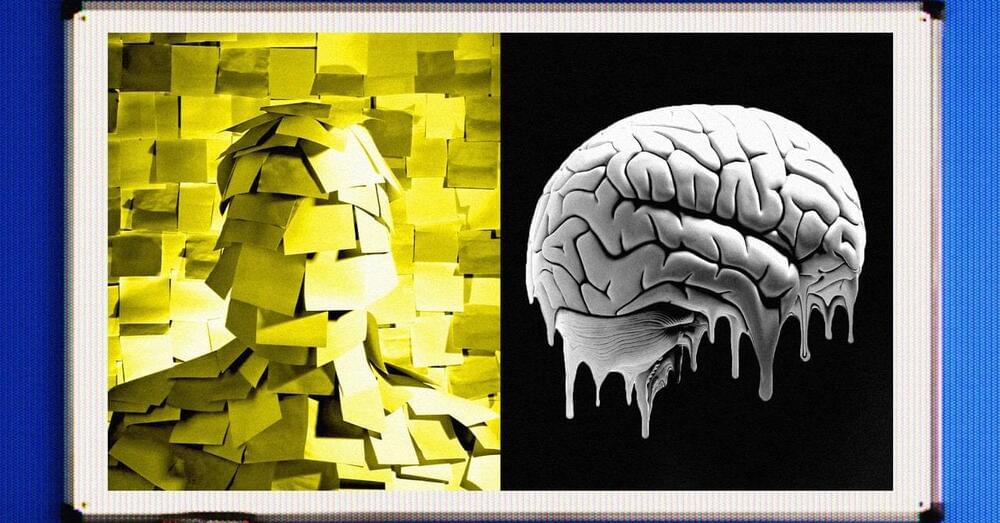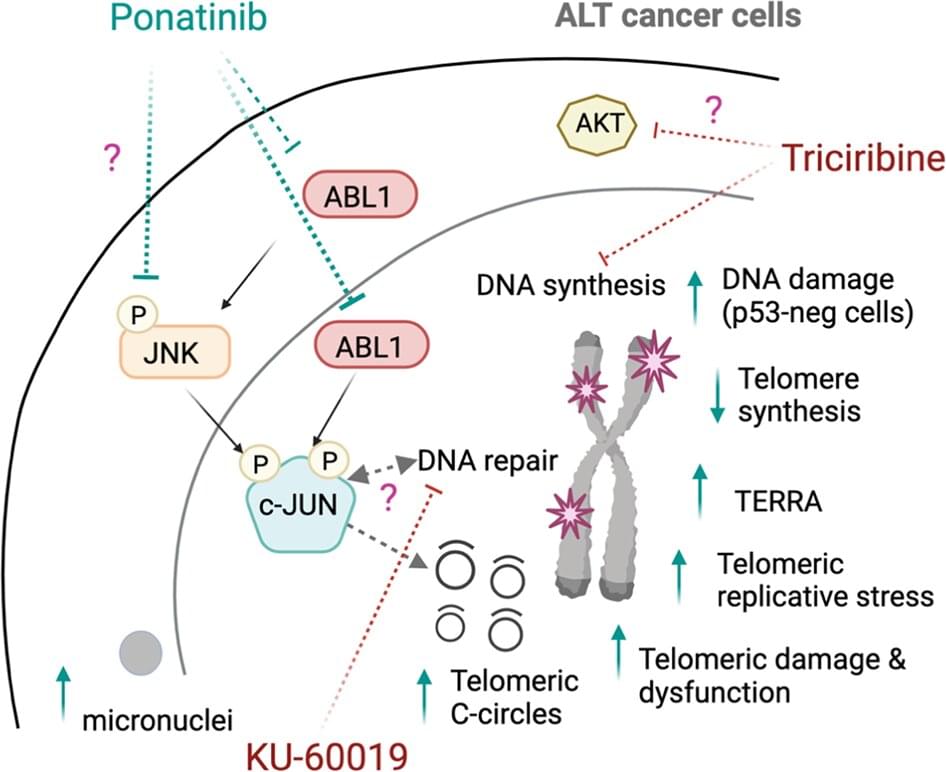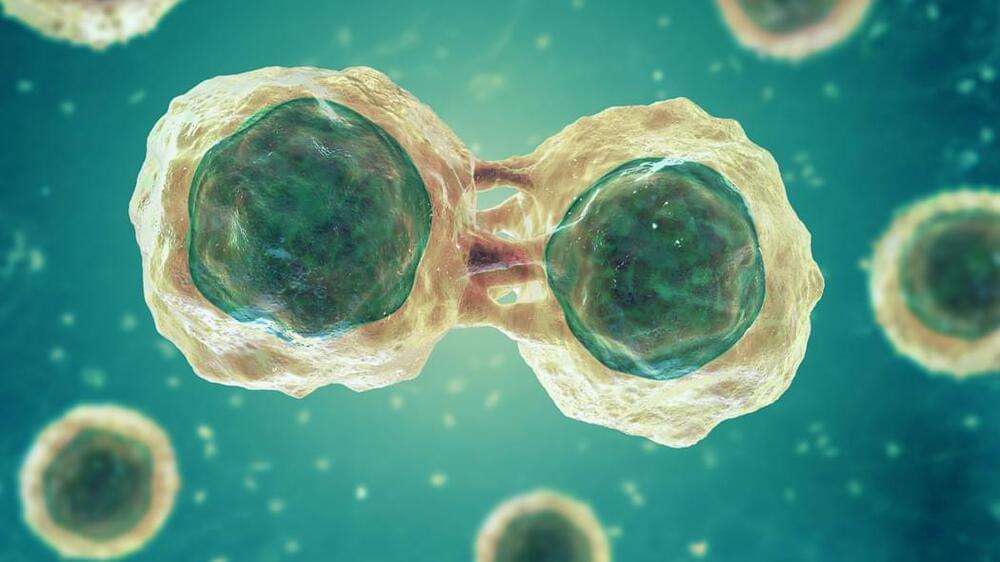Wouldn’t it be nice to get a flu shot that could last for years? Researchers are actively working on a so-called “universal” flu vaccine.
Get the latest international news and world events from around the world.

New Study Paves Way For Personalized Medicine For Infections
Researchers at Tel Aviv University (TAU) say they have identified two key components of the body’s immune response to severe infectious disease, potentially paving the way for personalized and more effective treatments in the field of infectious diseases.
An infectious disease is caused by a microorganism such as a bacterium or a virus entering the body and causing damage to the cells. These cells can also be damaged by the immune system fighting the infection, such as in the case of inflammation.
The body’s reaction to infection has previously been viewed as a monolithic unit, but now the TAU researchers have been able to locate two main markers in the blood that are triggered by infection.

AI vs. Cyber Threats: The Battle for Cybersecurity Dominance
Welcome to PyGrid AI, the place to come for all things Artificial Intelligence (AI). Our blog publishes articles from experts in the field that cover a wide range of topics related to AI. Whether you are looking for the latest news, research findings, or practical advice on how to use AI, you will find it here. We strive to provide the most up-to-date information on AI, as well as thoughtful commentary, to help you make the most of this exciting technology. Thank you for visiting AI Formation, and please come back often!


Russia successfully tests secret nuclear-powered “Poseidon” torpedo
Russia has successfully conducted tests on parts of its next-generation “Poseidon” nuclear-capable torpedo, according to reports.
Testing of reactors for the Poseidon unmanned nuclear-powered underwater drones shows “their operability and safety have been confirmed,” Russian state news agency RIA Novosti reported on June 23. The report was also shared on Russian-language social media channels.
“They are ready to work as intended,” the Kremlin-backed outlet quoted an unnamed source “in the military-industrial complex.” The first “sea tests” are scheduled for this summer.

Beware the Digital Whiteboard
In 2003, the data visualization expert Edward Tufte traced that year’s Columbia disaster—in which seven astronauts died when their shuttle disintegrated—to a piece of software. It was PowerPoint, he argued, that prevented people at NASA from understanding the gravity of the risks facing the shuttle. PowerPoint all but forced “breaking up narratives and data into … minimal fragments,” “a preoccupation with format not content,” and “a smirky commercialism that turns information into a sales pitch.” Serious dangers got buried at the bottom of a multilevel hierarchy of bullet points under a bigger, sunnier title. If only the information had been delivered in a proper technical report, Tufte implied, the astronauts might still be alive.
Twenty years later, there’s a new office tool keeping us from fully expressing and processing important information: the digital whiteboard. These boards are vast canvases on which you can add and drag around virtually limitless quantities of text, images, tables, diagrams, emoji, and shapes. In their typical state, they are mostly covered with sticky notes on which people have written a word or three. What the words signify in context can quickly become hard to remember, but that’s OK. Like books used as decorations, they get their value from the fact that they signify something.

Hybrid Model for RNA Bioprocessing
When asked how this model can cover such a broad scale, Xie says, that it “is rooted in the integration of mechanistic modeling and ML statistical methods, which allows the model to provide a more comprehensive and nuanced understanding of various aspects of RNA and related processes, while quantifying uncertainties due to limited knowledge.”
For example, she explains that, “The mechanistic aspect of the model captures intricate physical and chemical properties at the atomic level, which supports a deep understanding of the underlying biological processes, and the machine-learning element can effectively capture patterns in complex datasets—such as molecular simulations and single-molecule fluorescence microscopy time-course data—and learn relationships that might not be explicitly described in existing mechanistic models.”
In addition to helping scientists better understand the fundamental biology of RNA, the Northeastern team’s hybrid model promises many commercial benefits in the production of monoclonal antibodies, cell and gene therapies, and mRNA vaccines. As Xie says, “It can advance the knowledge of RNA manufacturing mechanisms and guide simultaneous design/control strategies at different levels, such as RNA sequence selection and specifications of critical quality attributes, with less experiments.”

Existing cancer drug ponatinib could be repurposed to fight certain aggressive cancers
A team of scientists led by Nanyang Technological University, Singapore (NTU Singapore) has found that an existing cancer drug could be repurposed to target a subset of cancers that currently lack targeted treatment options and are often associated with poor outcomes.
This subset of cancers makes up 15% of all cancers and is especially prevalent in aggressive tumors such as osteosarcoma (bone tumor) and glioblastoma (brain tumor).
These cancerous cells stay “immortal” using a mechanism called the alternative lengthening of telomeres (ALT), but the team has demonstrated that ponatinib, a cancer drug approved by the US Food and Drug Administration, blocks key steps in the ALT mechanism that leads it to fail.

Demystifying the Art of Stem Cell Isolation and Picking
Stem cells are valuable to a wide range of biomedical and pharmaceutical research applications because of their high self-renewal and differentiation potential. But working with human stem cells is not easy. For starters, they are high-maintenance and expensive to culture. They also need to be constantly monitored, to ensure they remain pluripotent, viable and homogeneous. In order to set yourself up for success, firstly, you need a precise and gentle way to isolate stem cells.
Challenges of stem cell isolation
Stem cells are cultured in the lab using specialized “recipes” that vary depending on the application. For example, adult cells can be reprogrammed into pluripotent stem cells (iPSCs) by adding cofactors like Oct3/4, KLF4, Sox2 and c-Myc1. Along the way, stem cells are isolated for routine testing to make sure they have the expected features.

Haunting Message in a Bottle From Cancer Patient Washes Up in Florida: ‘I Am Now Gone’
Stumbling across seashells and sea creatures is commonplace while on a trip to Florida, but finding a message in a bottle seems like something straight out of a storybook.
Brent Coleman, his 13-year-old son Garrison, and his friend, 13-year-old Lane McCall, had traveled from Georgia for a vacation when they came across a bottle while walking on Bradenton Beach, as reported by WFLA.
Inside the bottle was a handwritten note from a man named Howard Brown. He had written that he would have loved to live a life in Florida with his wife of 57 years, but “cancer had other plans.” The note continued, stating that by the time someone found the bottle, he would be gone.